This 40 years old patient, NW 3 vertex in hair loss scale came for a repair case:
He had 3 previous hair transplants by strip technique (3000 grafts).
Result : wrong hair angle direction, pluggy look, pitting, a damaged receiving area with bumps (cobblestone), and big scars in the donor.
His goal was: (1) To look natural, (2) To fill in his back scar, (3) To lower his frontal hair line and frame his face so that he will stop wearing a hat all the time.
Surgery 1 plan:
• Remove the plugs (to minimize the scarring, we usually close the punch holes with a suture, nylon 5/0, for 3 to 4 days. In this case, we left it for only one day because we had to graft the area)
• Lower FHL with hairs above the nape area, build back the temples pointes in harmony with the new hair line (otherwise the result may not look natural).
• Increase density in frontal zone. This area was fibrotic and whitish because of previous work and had poor blood circulation (poking test, bled after 20 sec or plus).
• Fill in scars in the back.
Total graft number: 4025 grafts in 4 days.
After 9 months
• Yield was very good in the virgin area (temples pointes, FHL). You will notice a difference in hair strength and pigmentation between his FHL and temples pointes. Indeed hairs for the FHL originated from lower donor area above the nape hairs.
• The pluggy look was corrected.
• Poor growth in the scarring area in frontal zone.
• Good coverage of the scar in the back (not illustrated in our pictures).

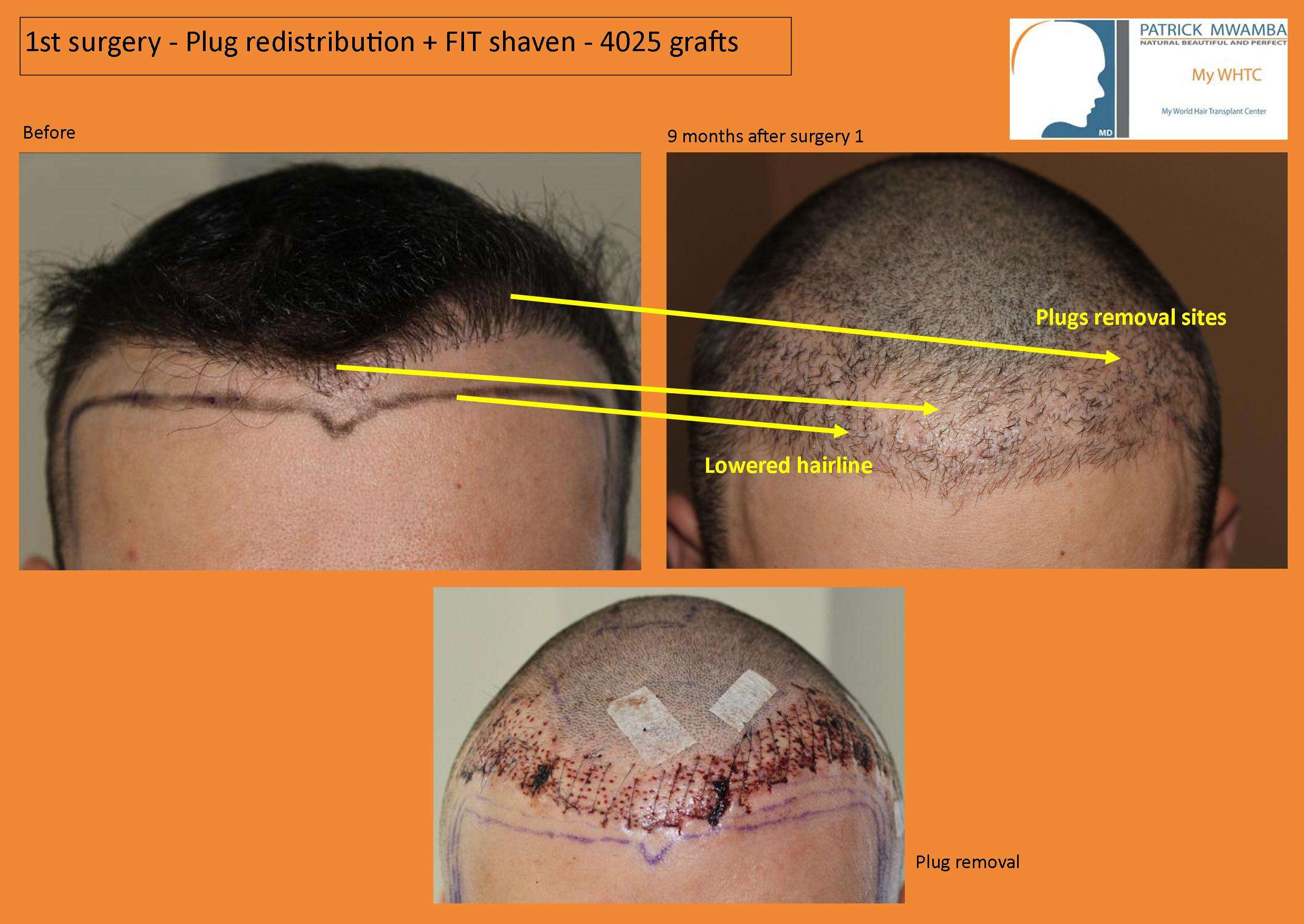
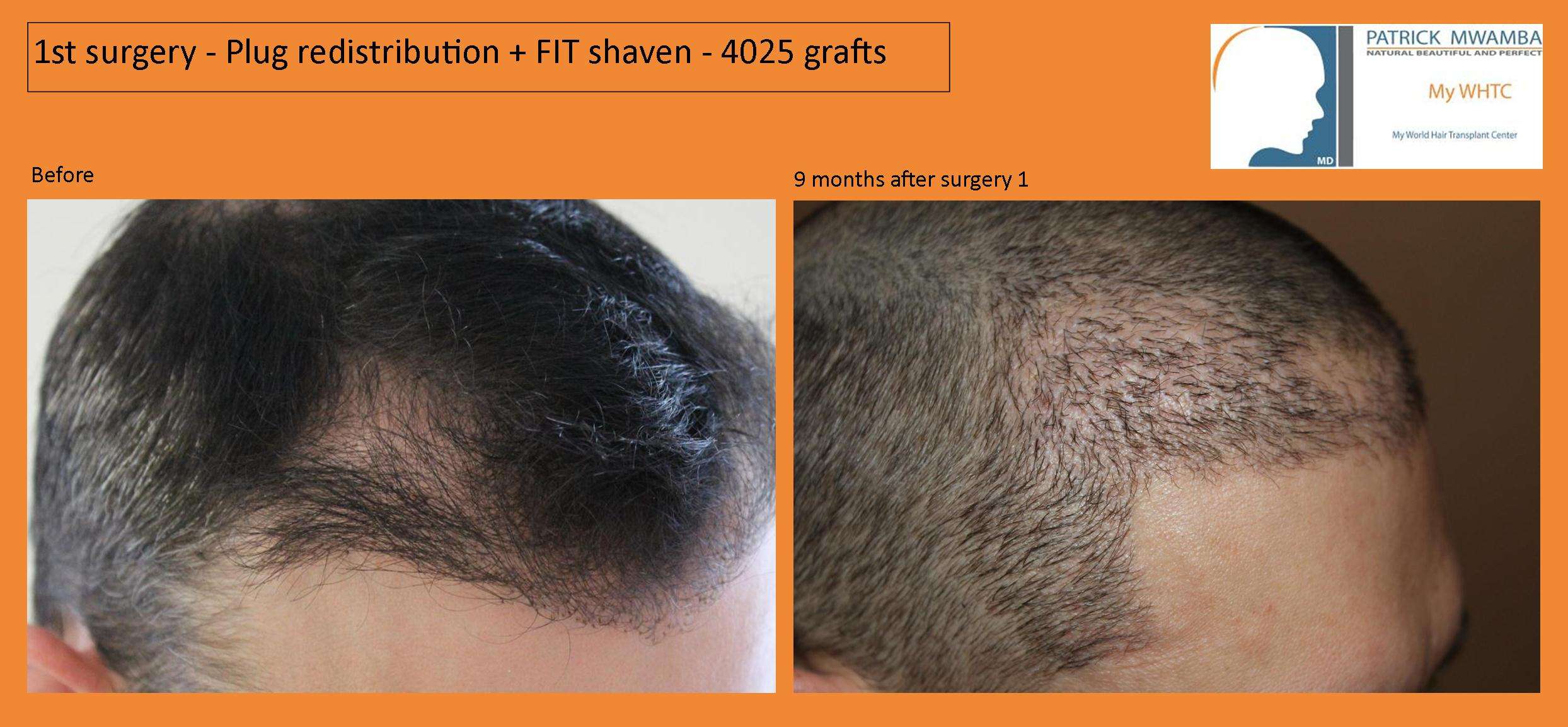
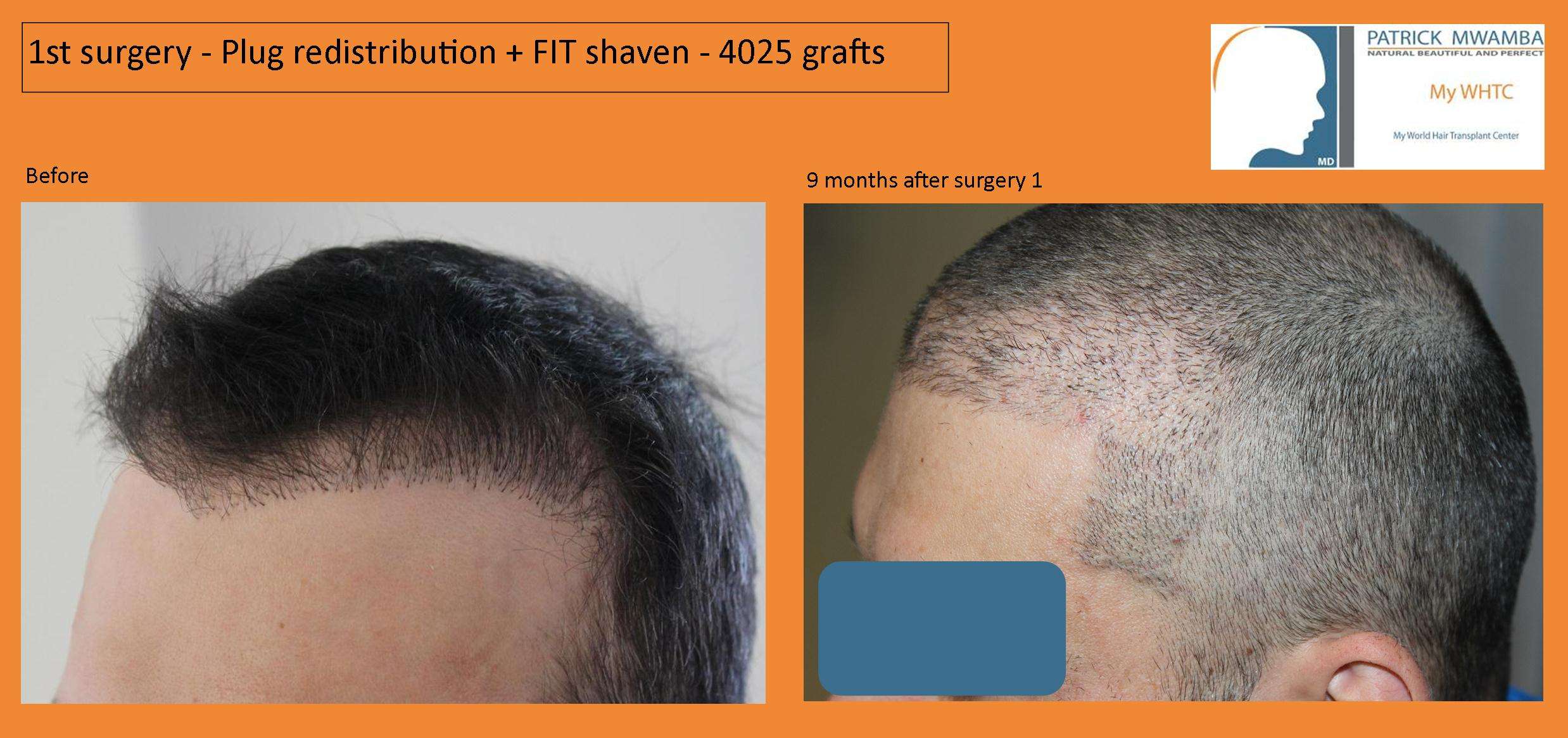
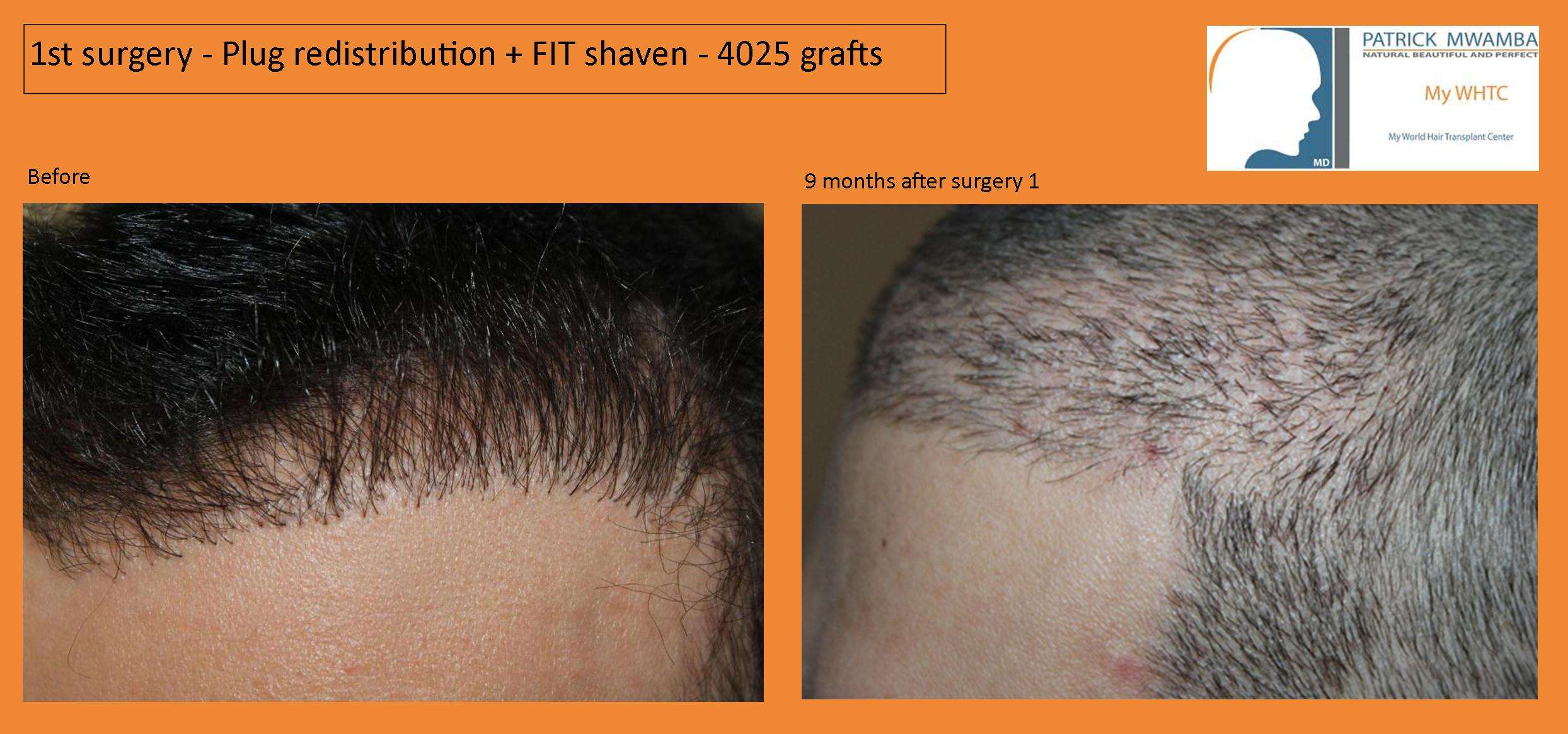
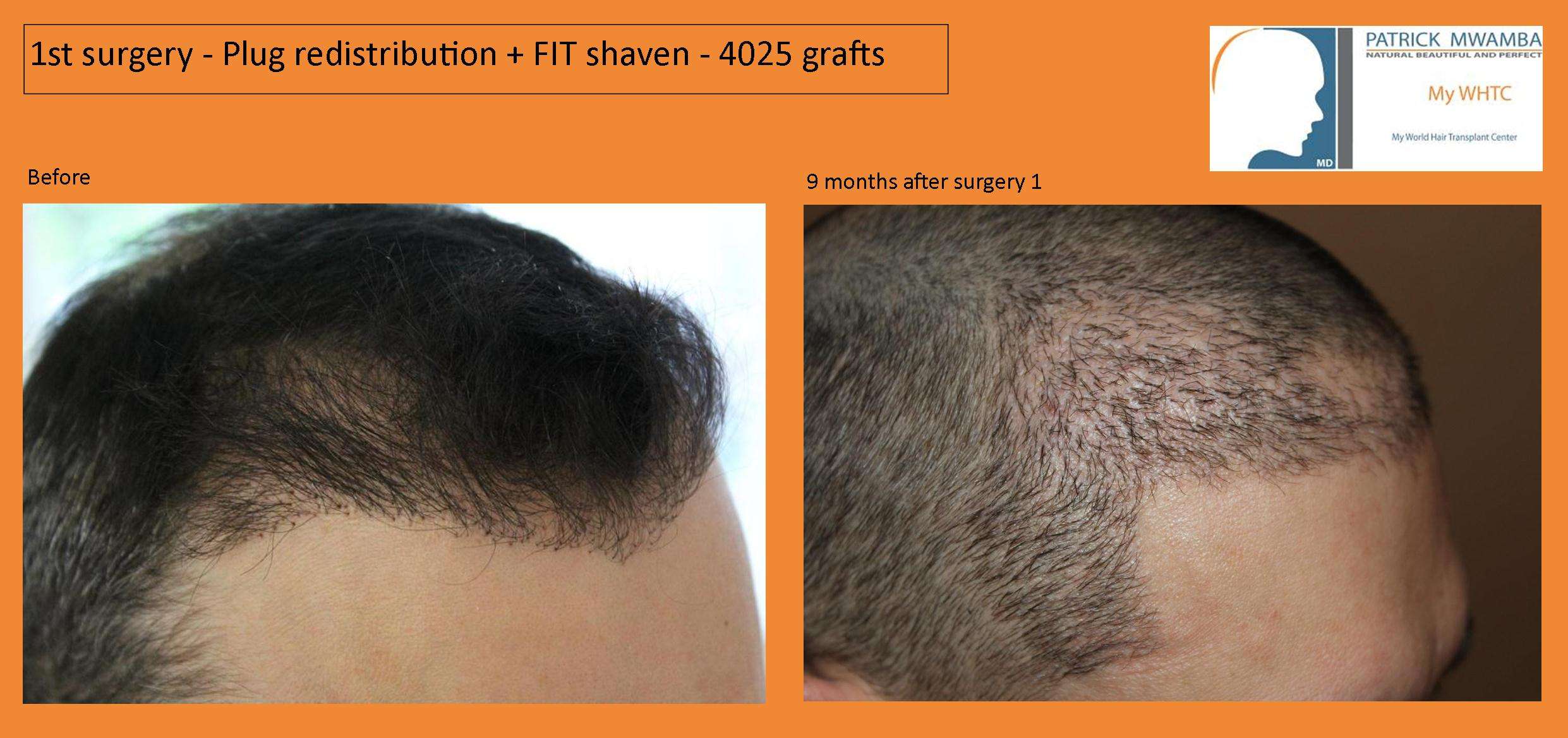
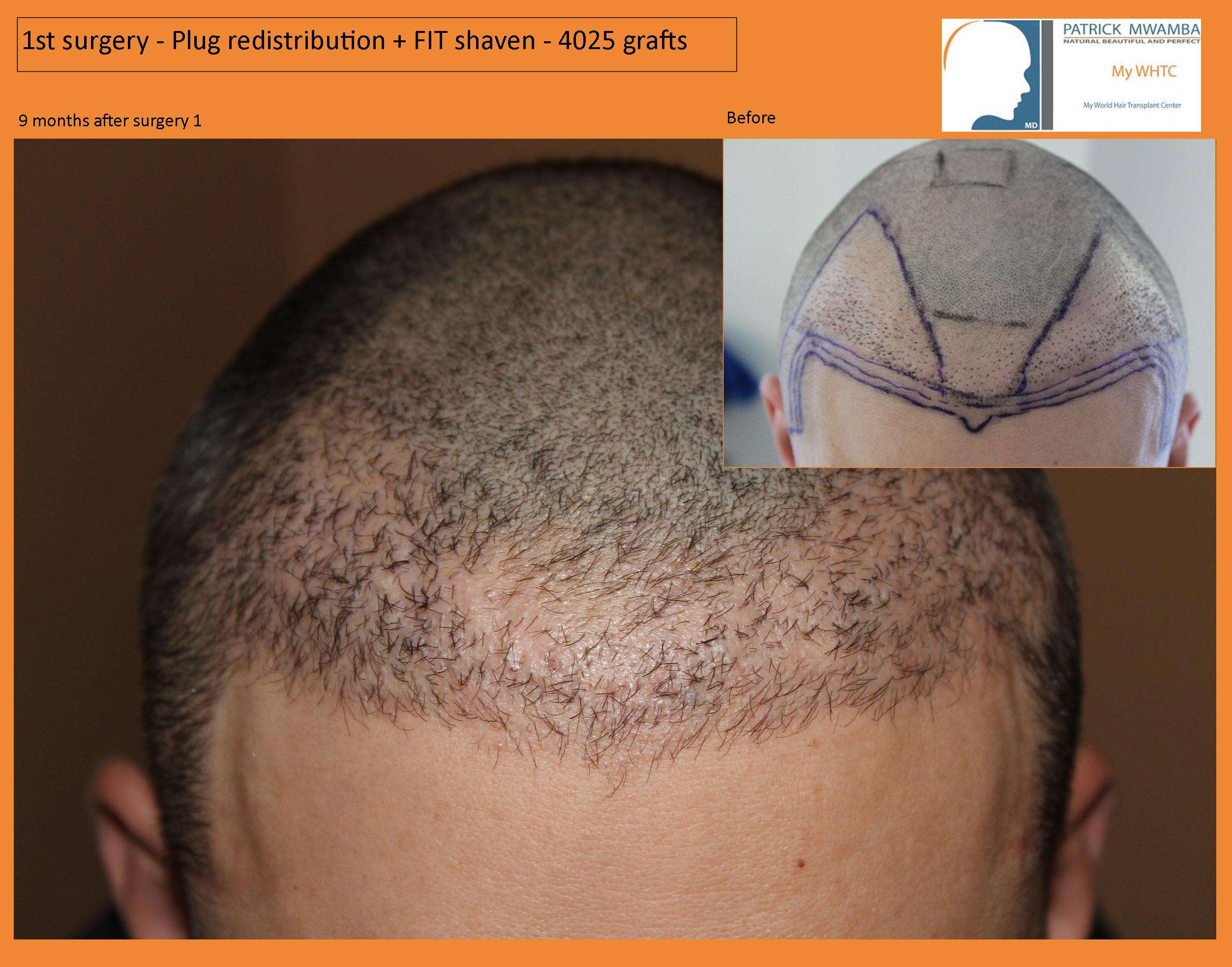
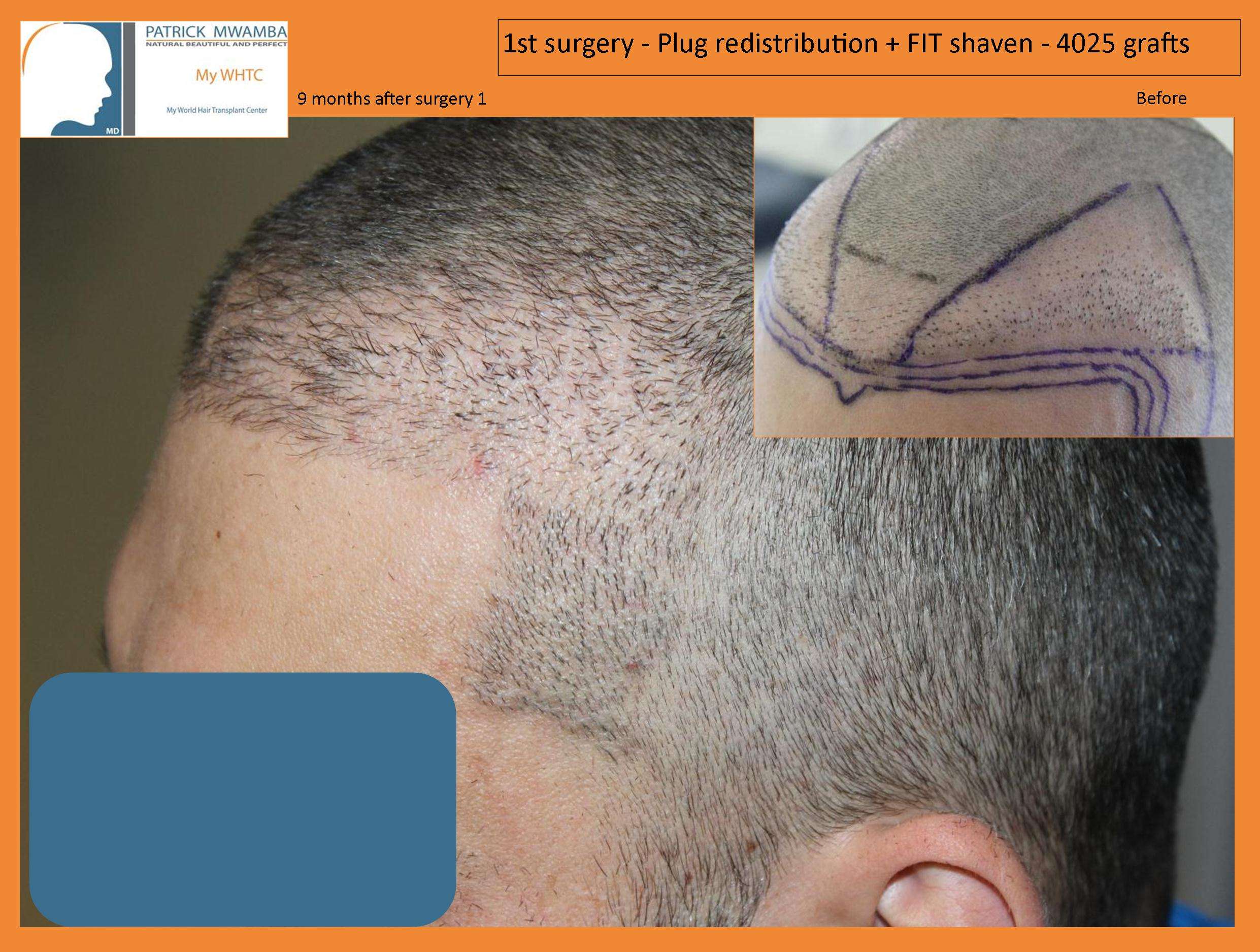
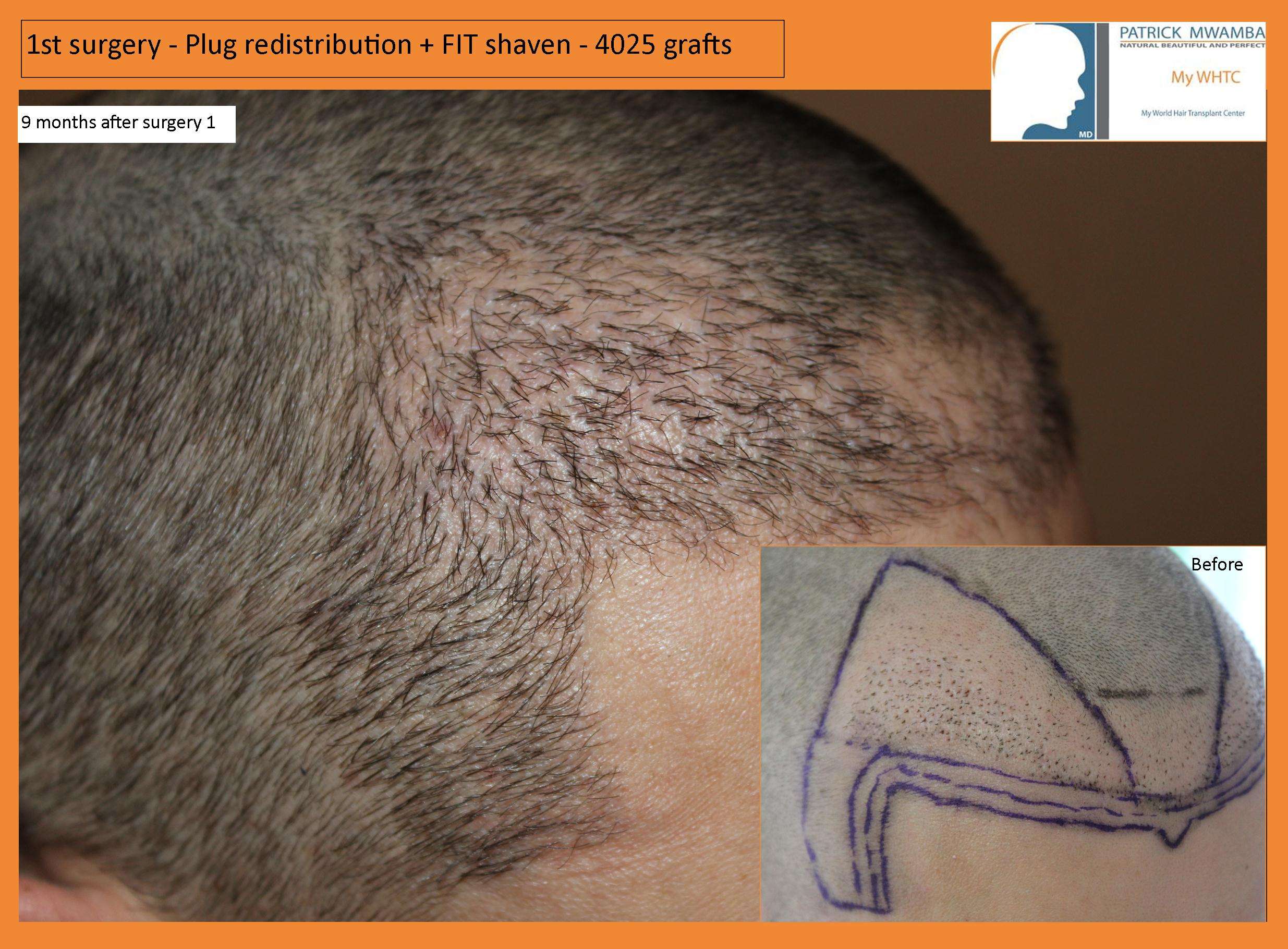
Surgery #2 Plan (9 months after surgery 1) :
• We decided with the patient to lower the density in the temples pointes by removing the grafts and relocating them in FHL and frontal zone.
• We completed the FHL with grafts from regular donor area for a total of 969 grafts.
RESULTS: Natural look with a low solid hair line, in harmony with temples pointes density.
• No pluggy look.
• Good growth in frontal zone that was grafted at low density.
Next step: Reinforce some patchy area in the frontal zone to complete the work.
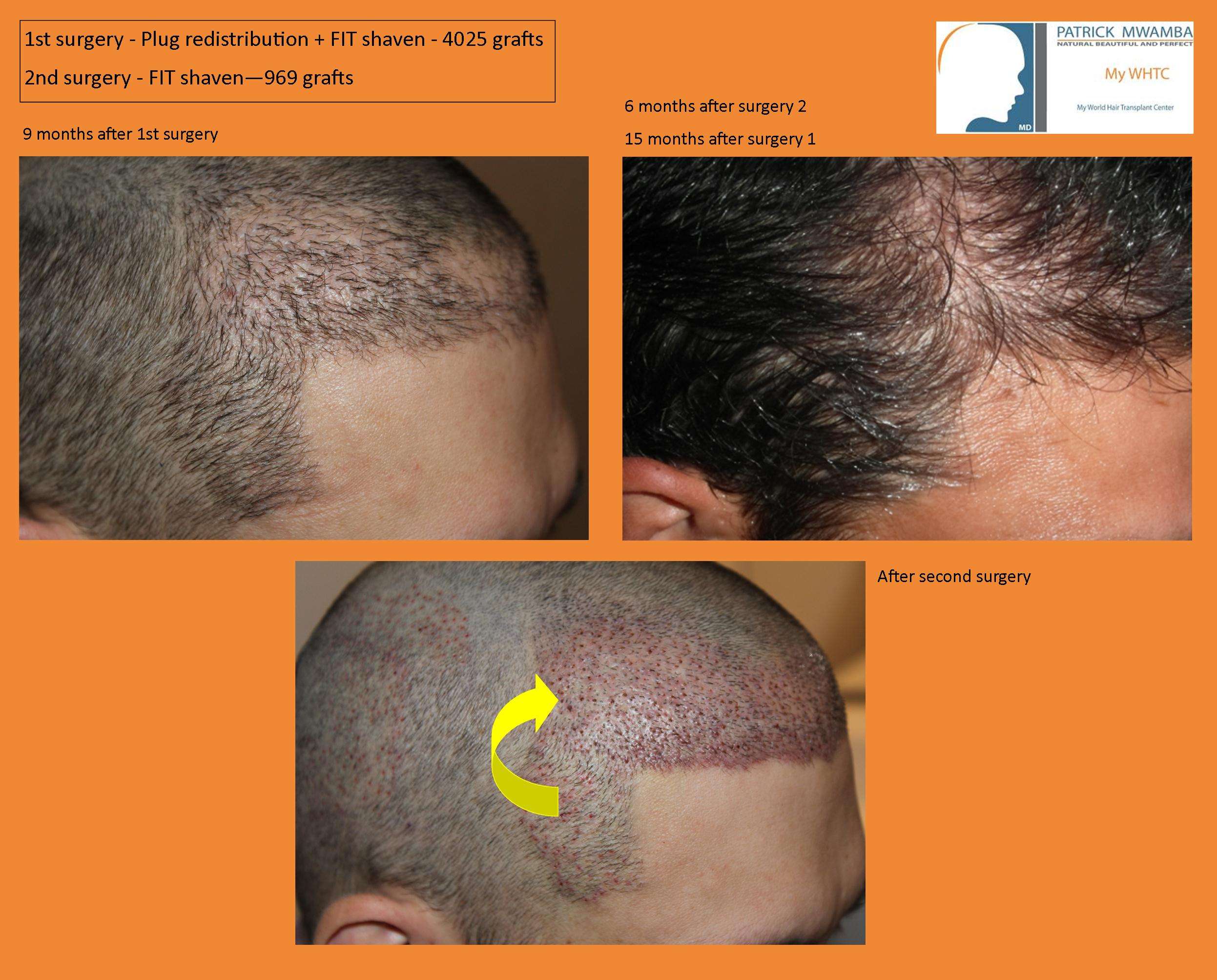
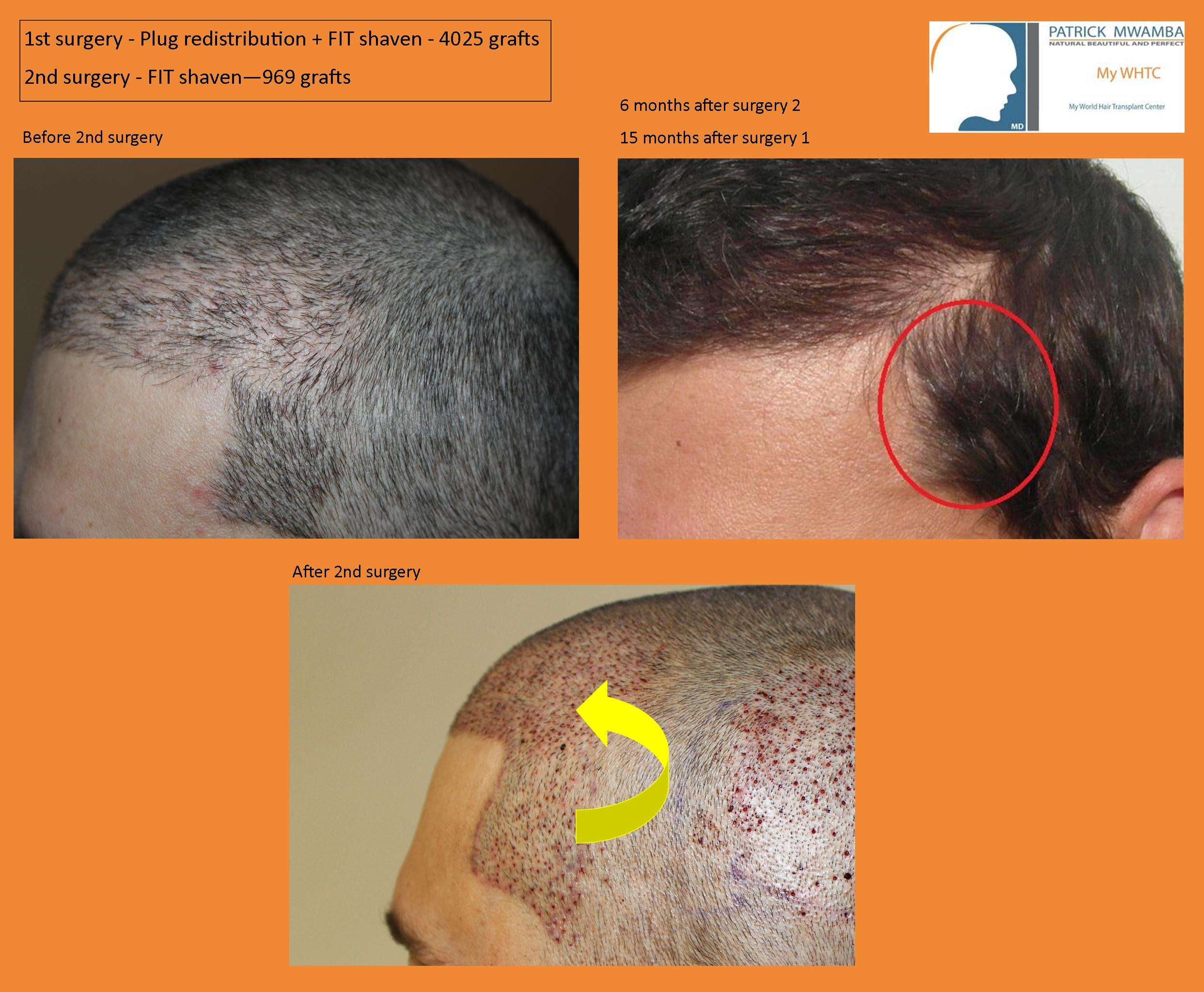
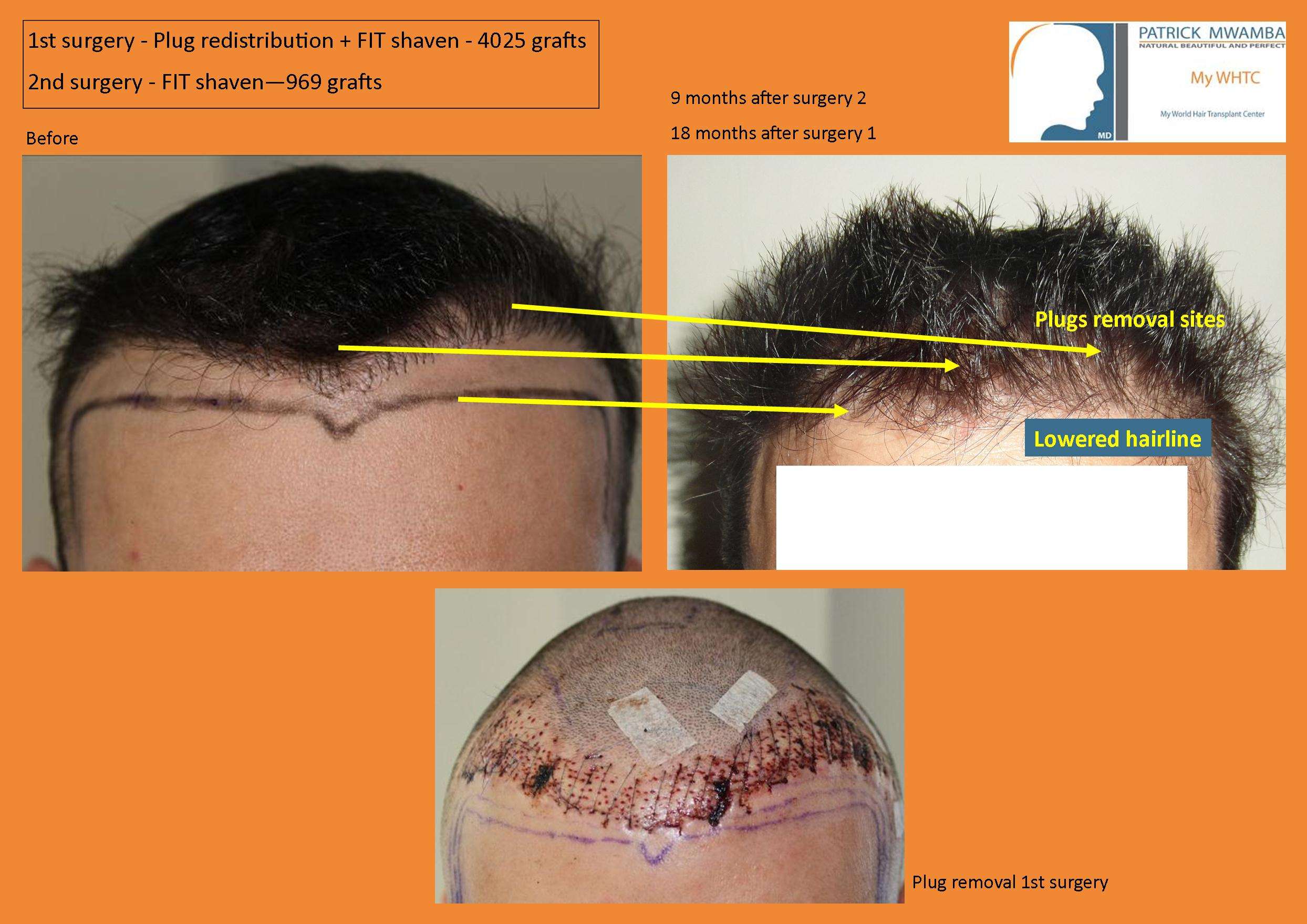
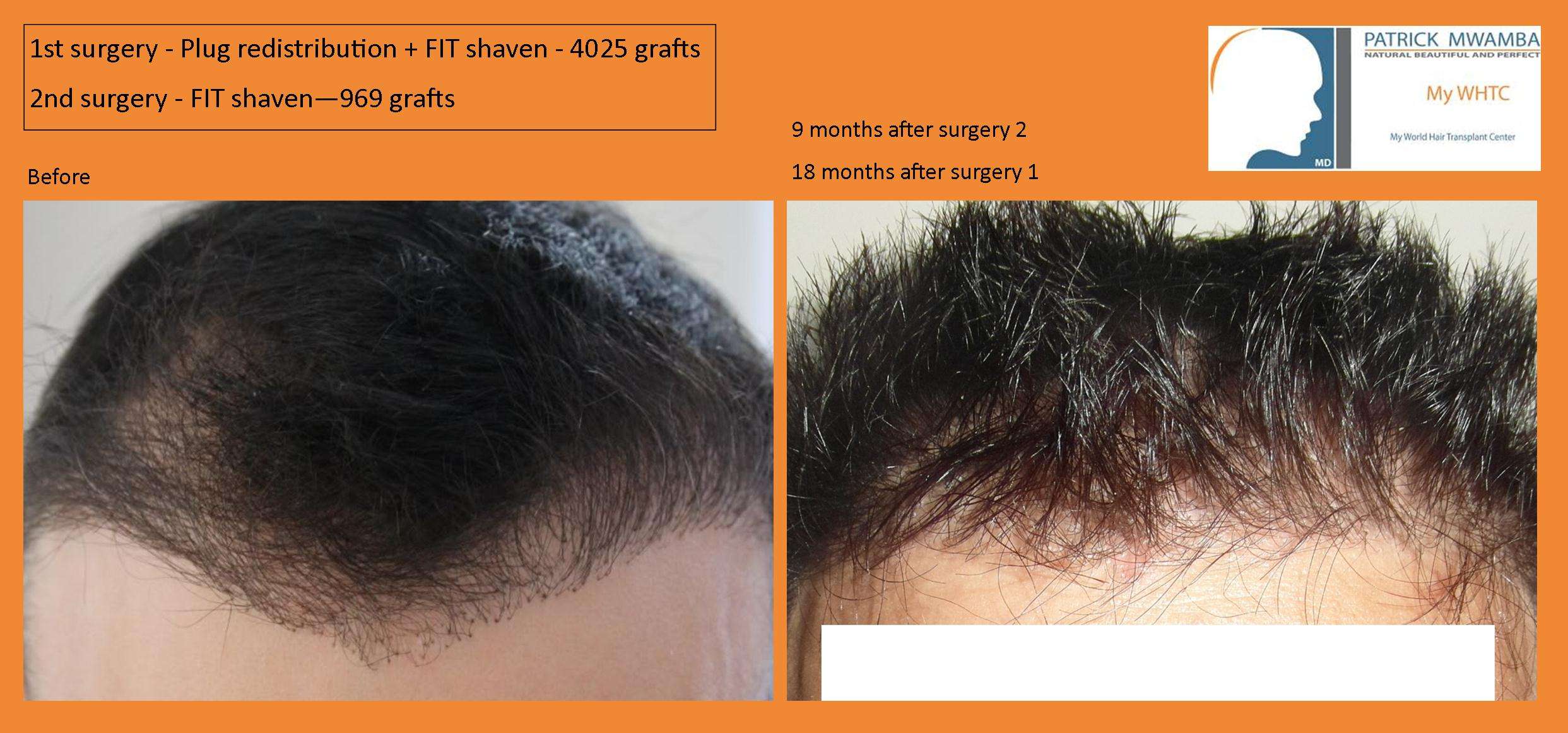
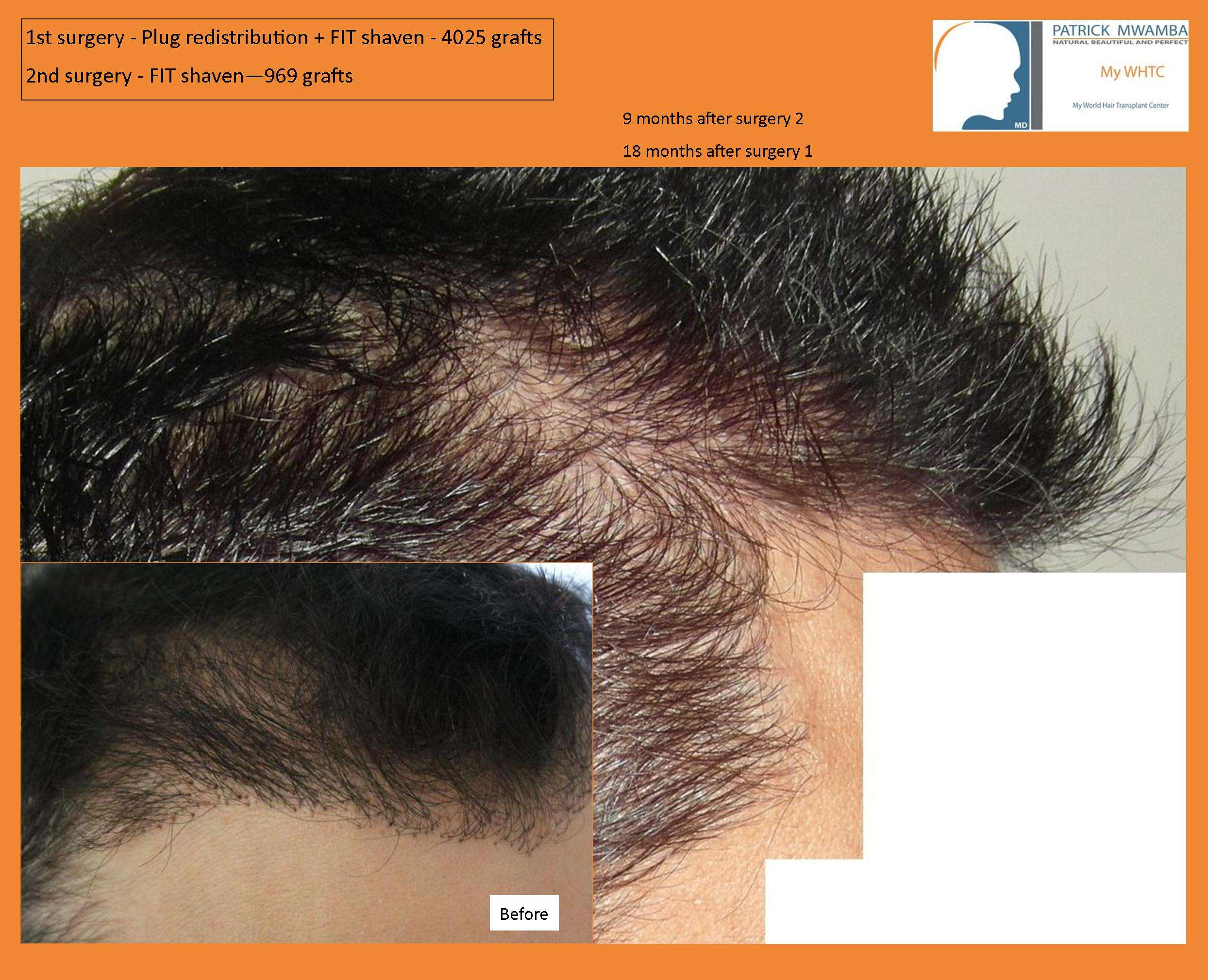
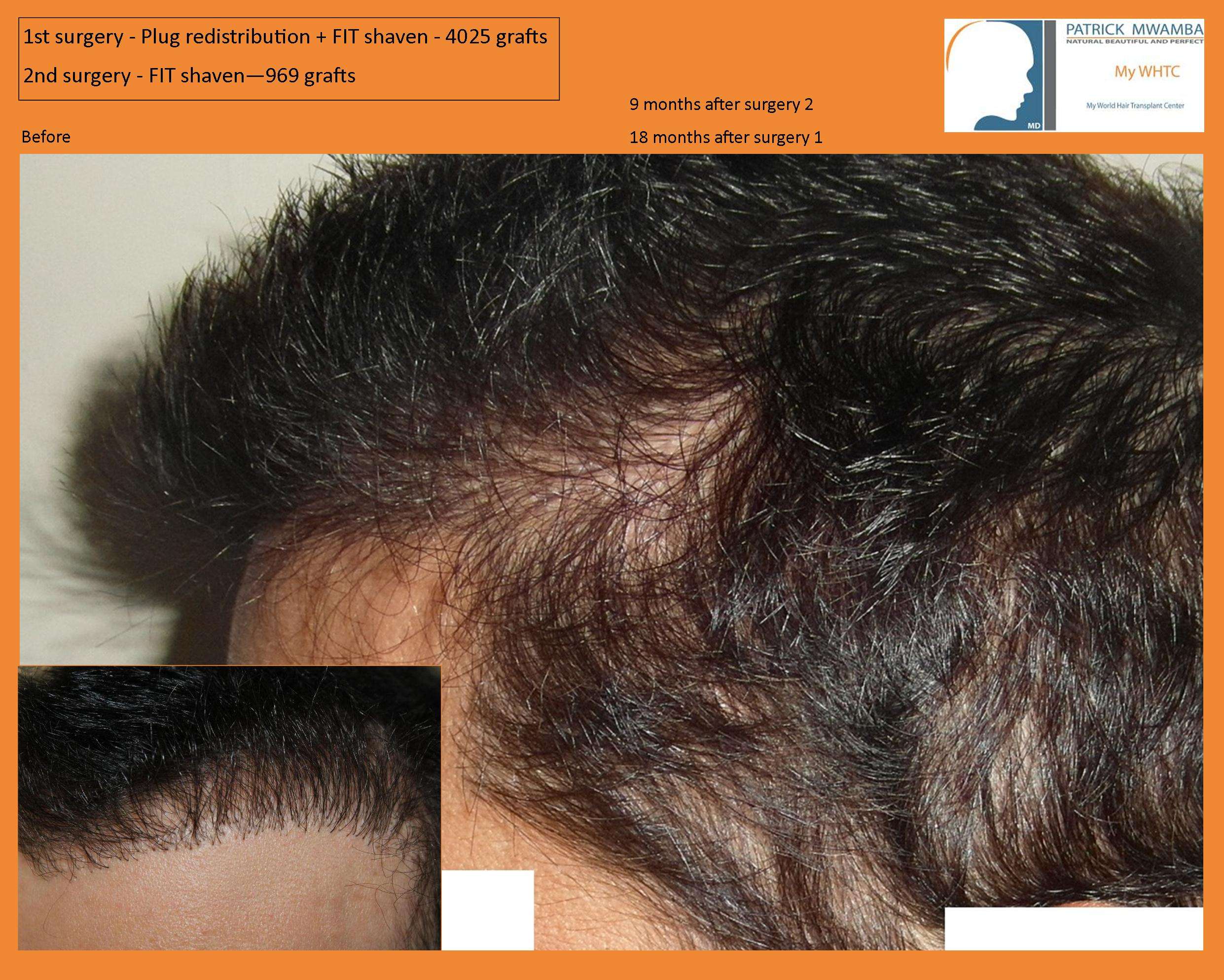
IMG]http://imageshack.us/a/img854/2309/sx210.jpg[/IMG]
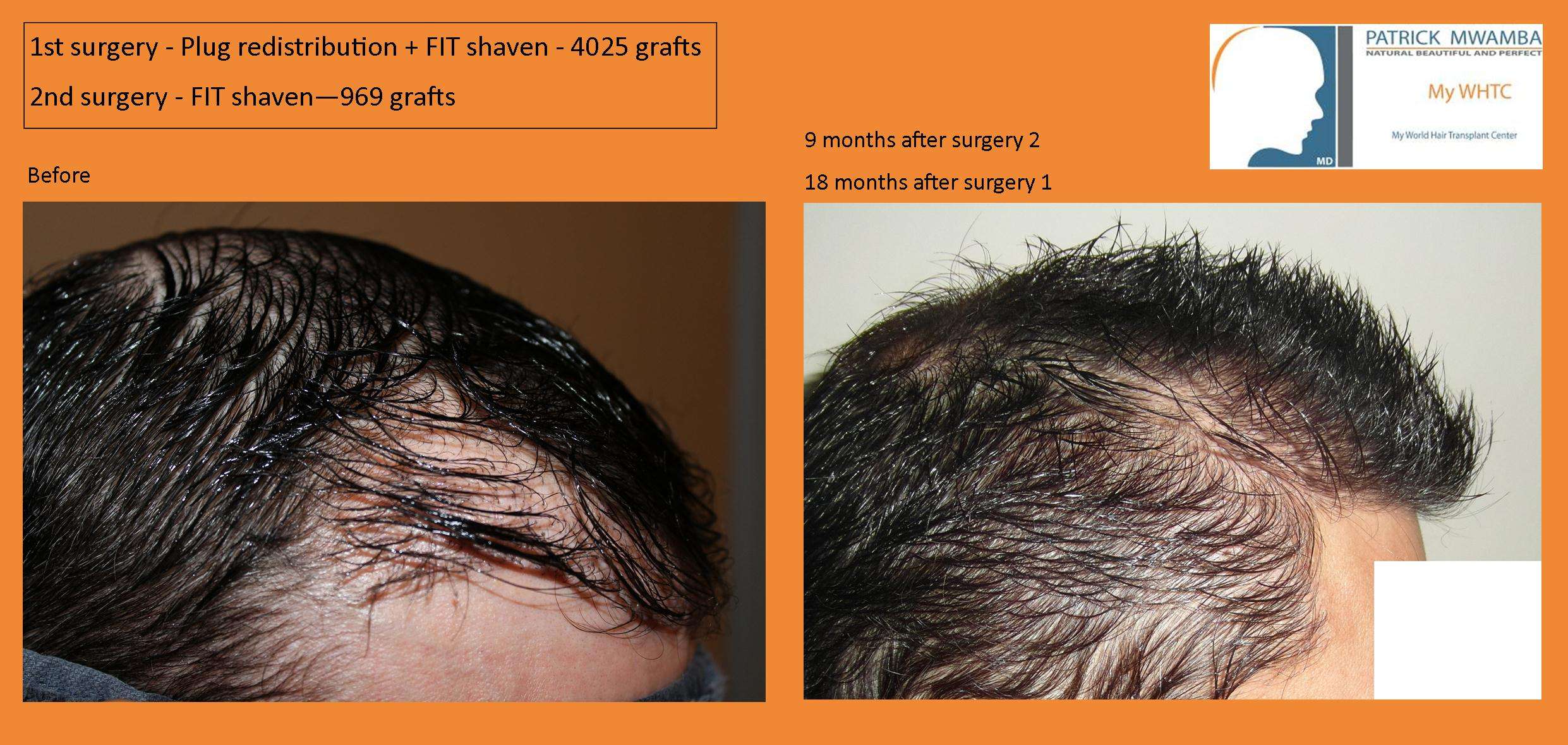
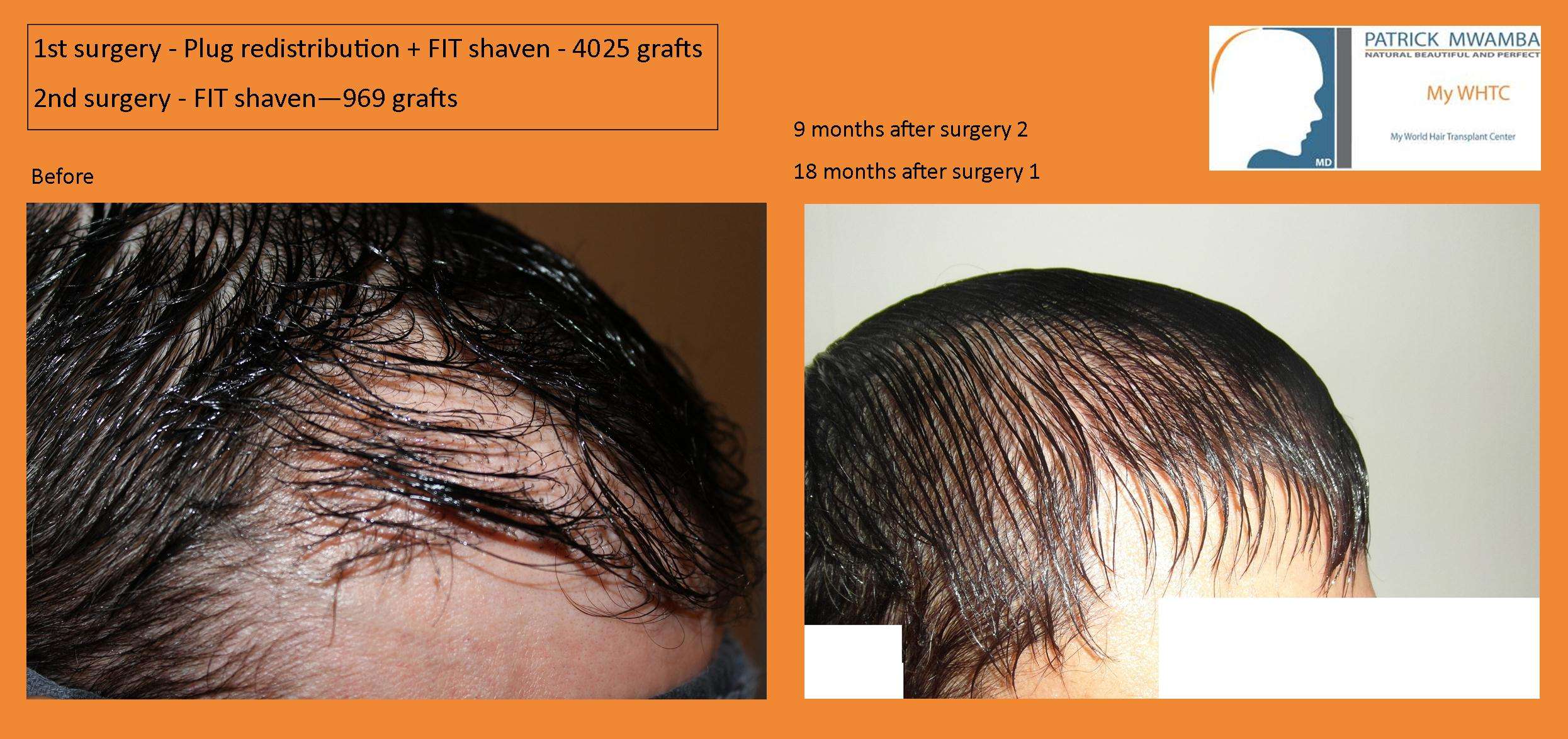
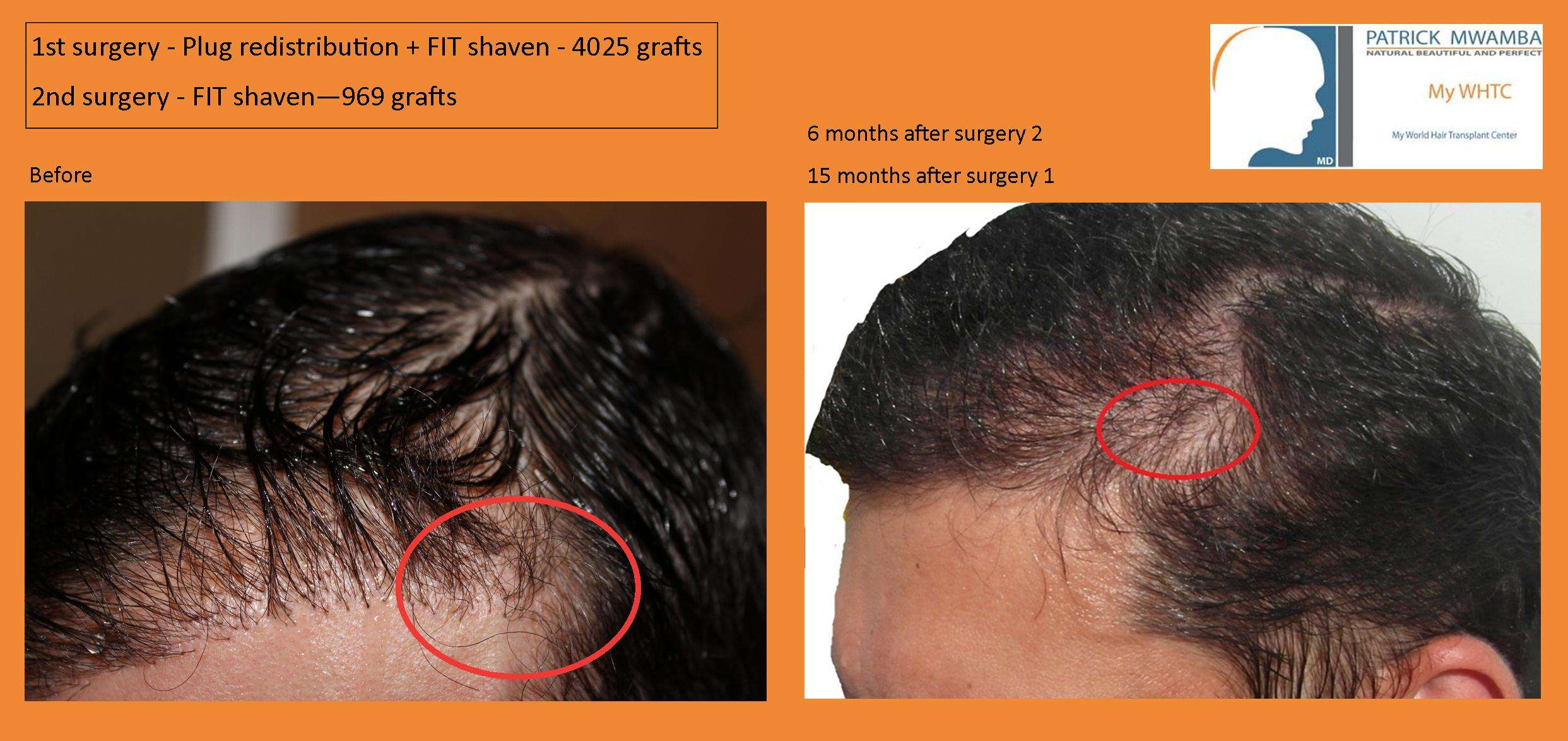
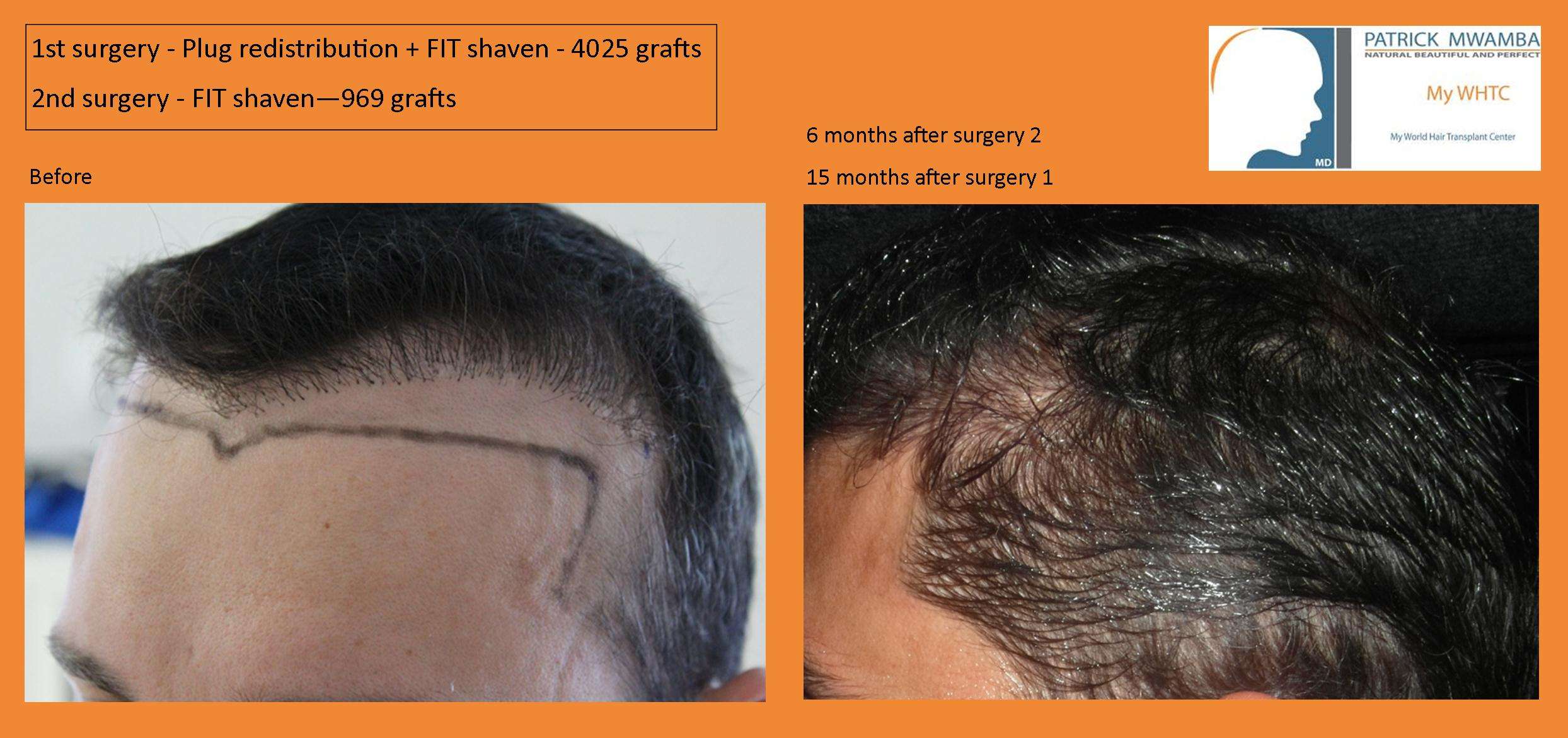
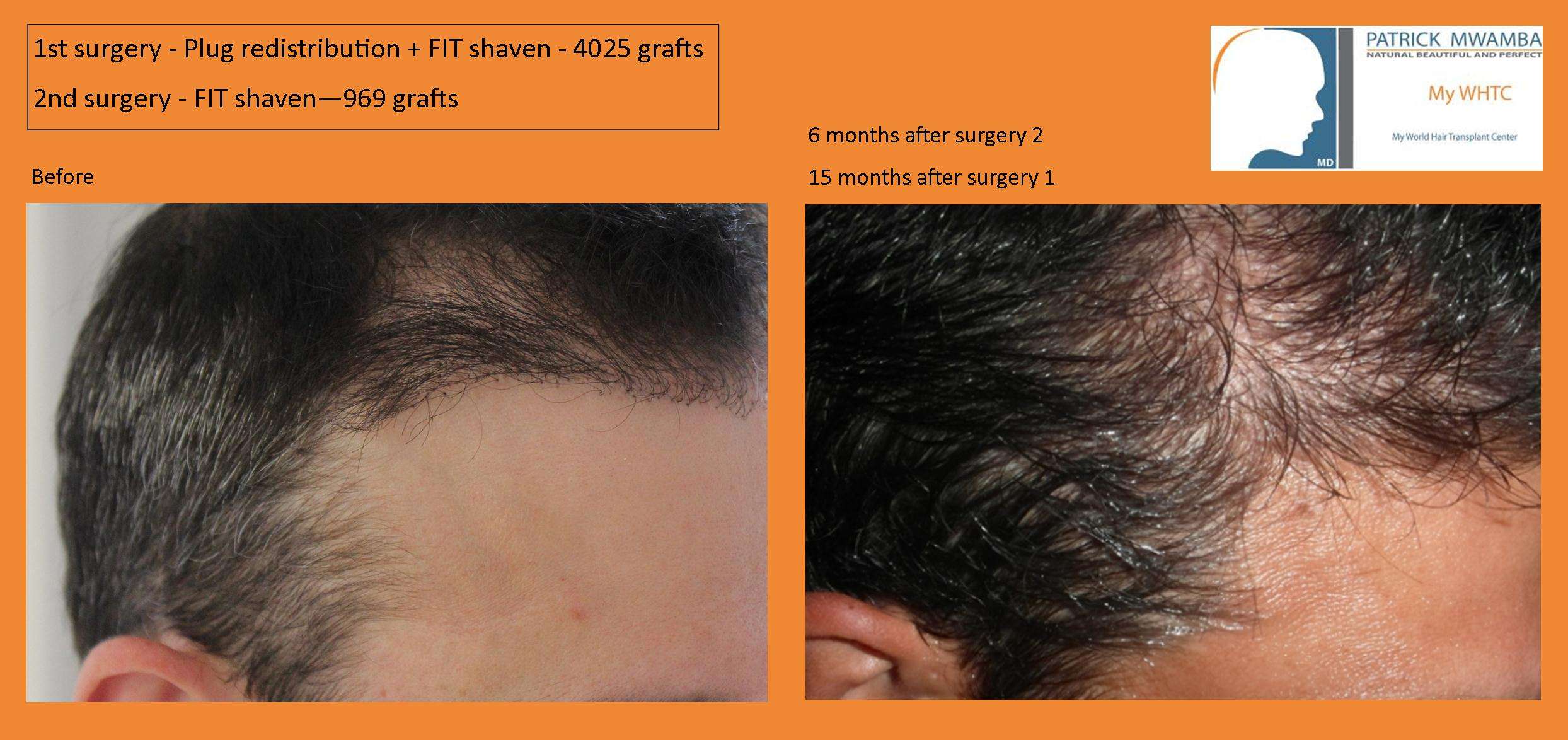
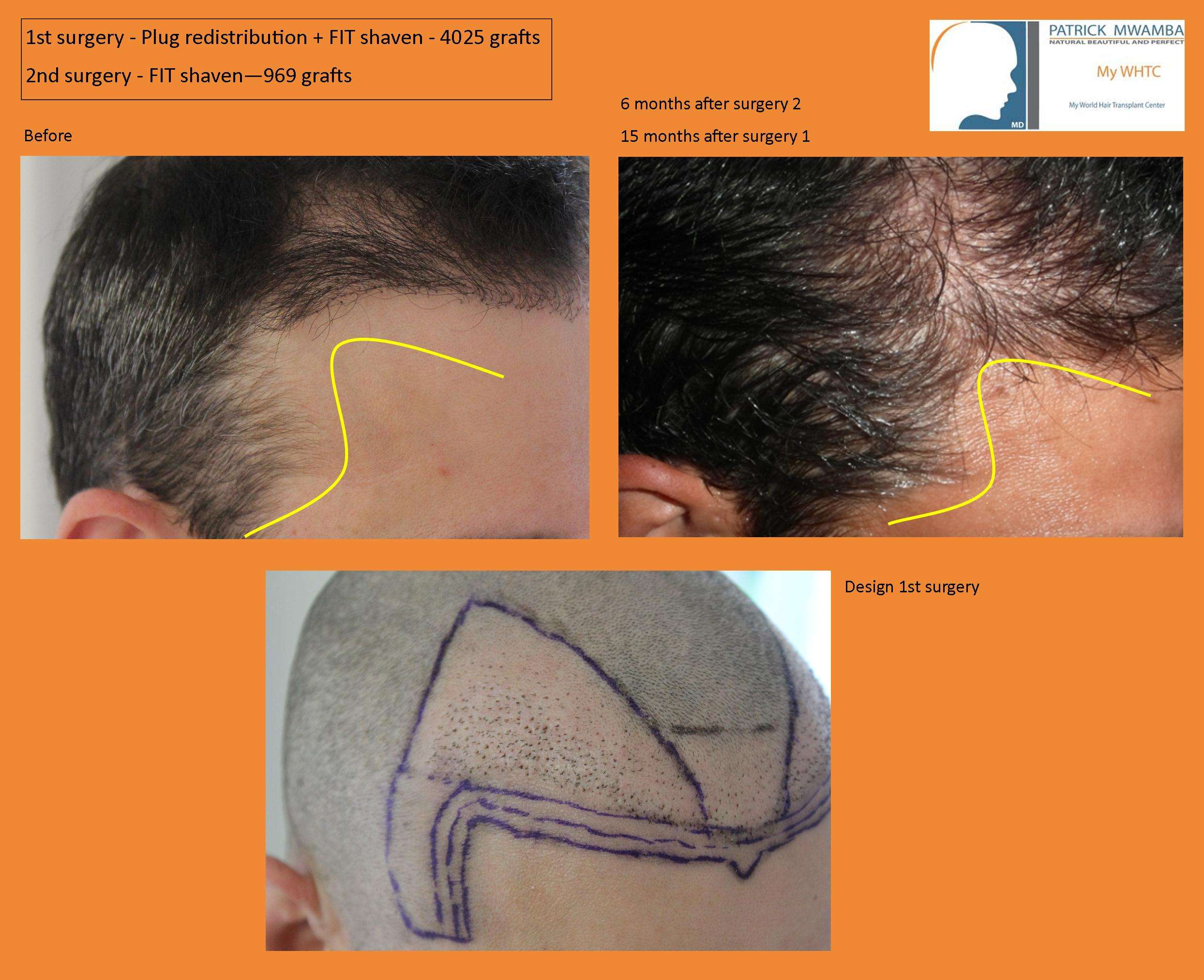
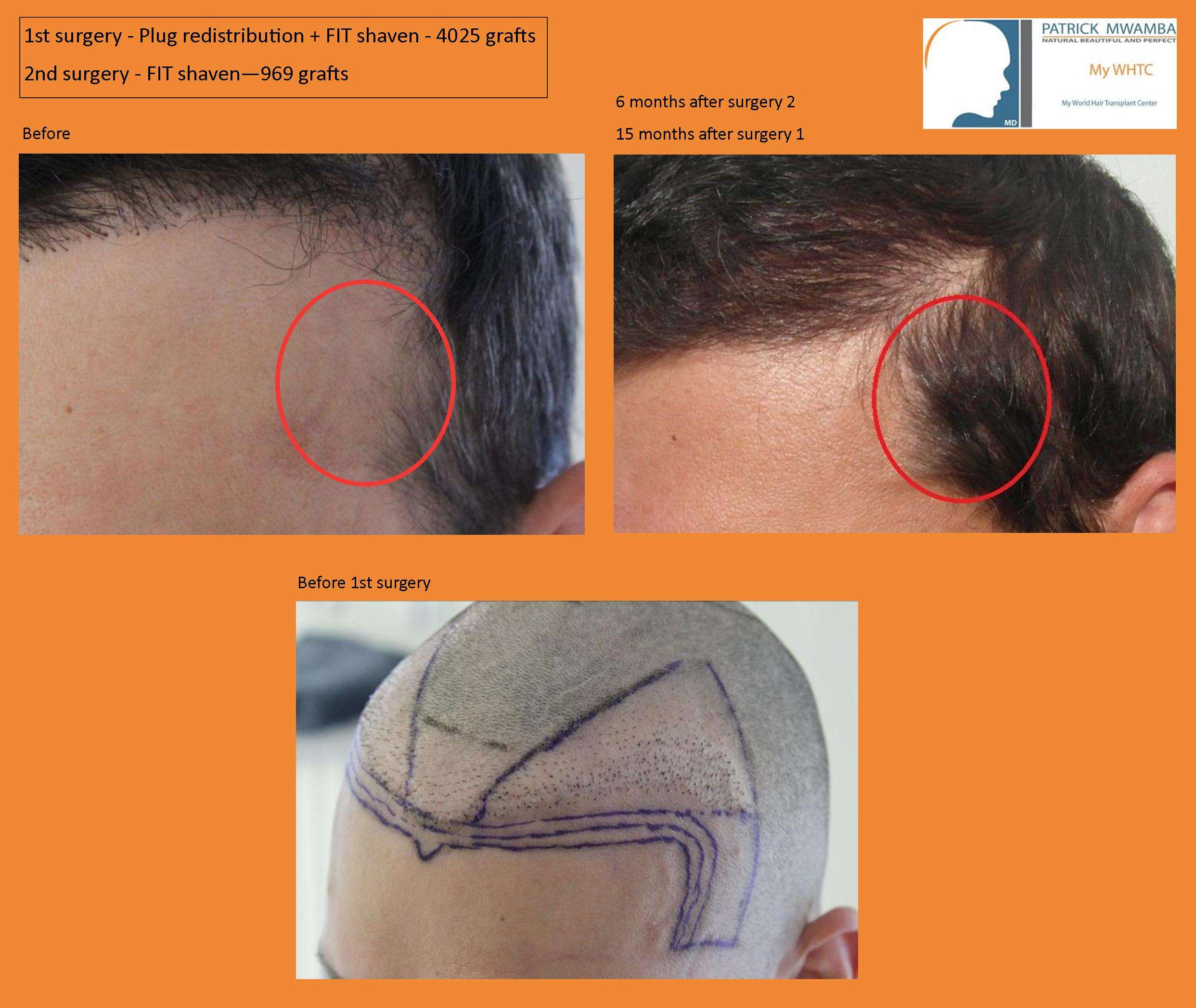
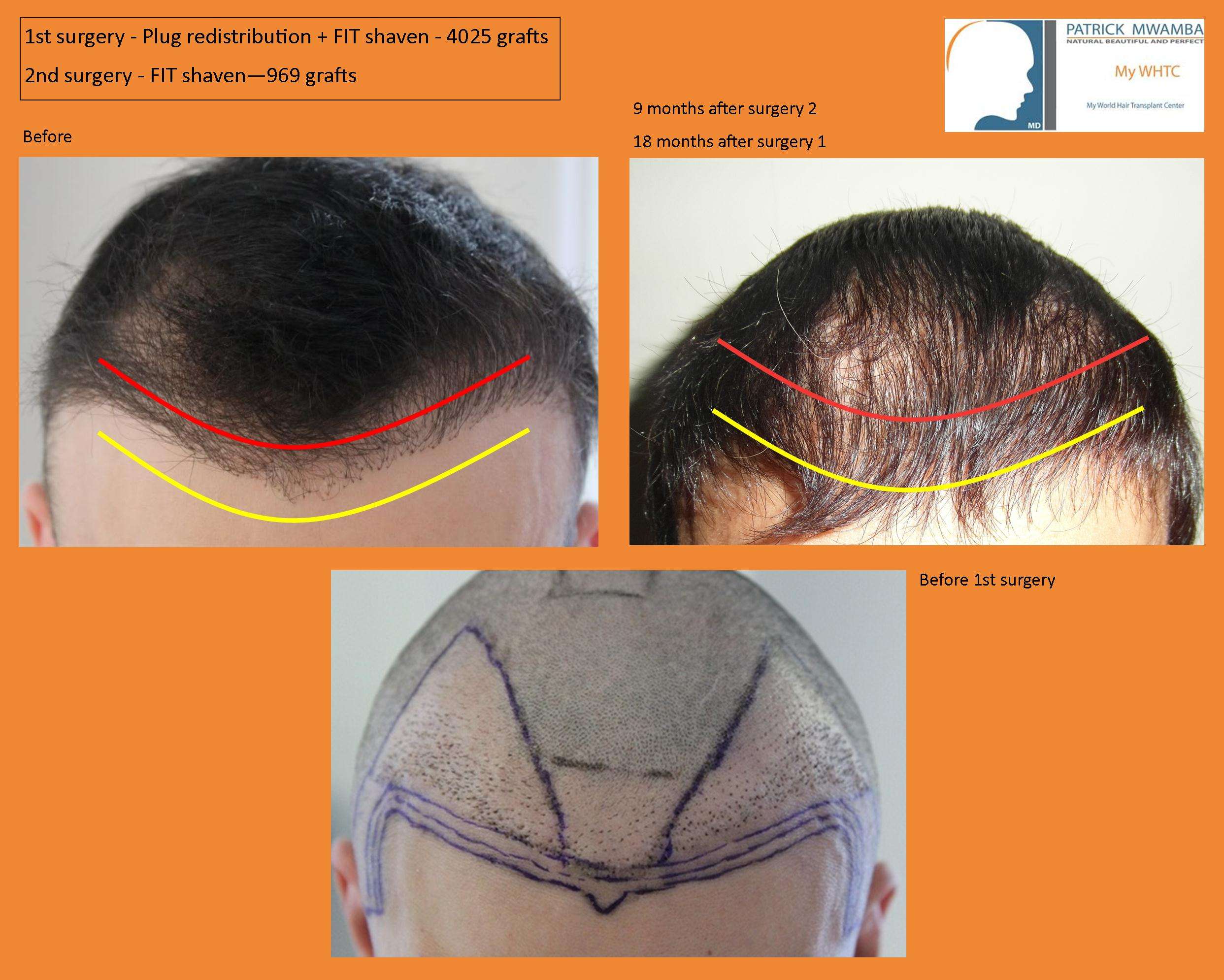

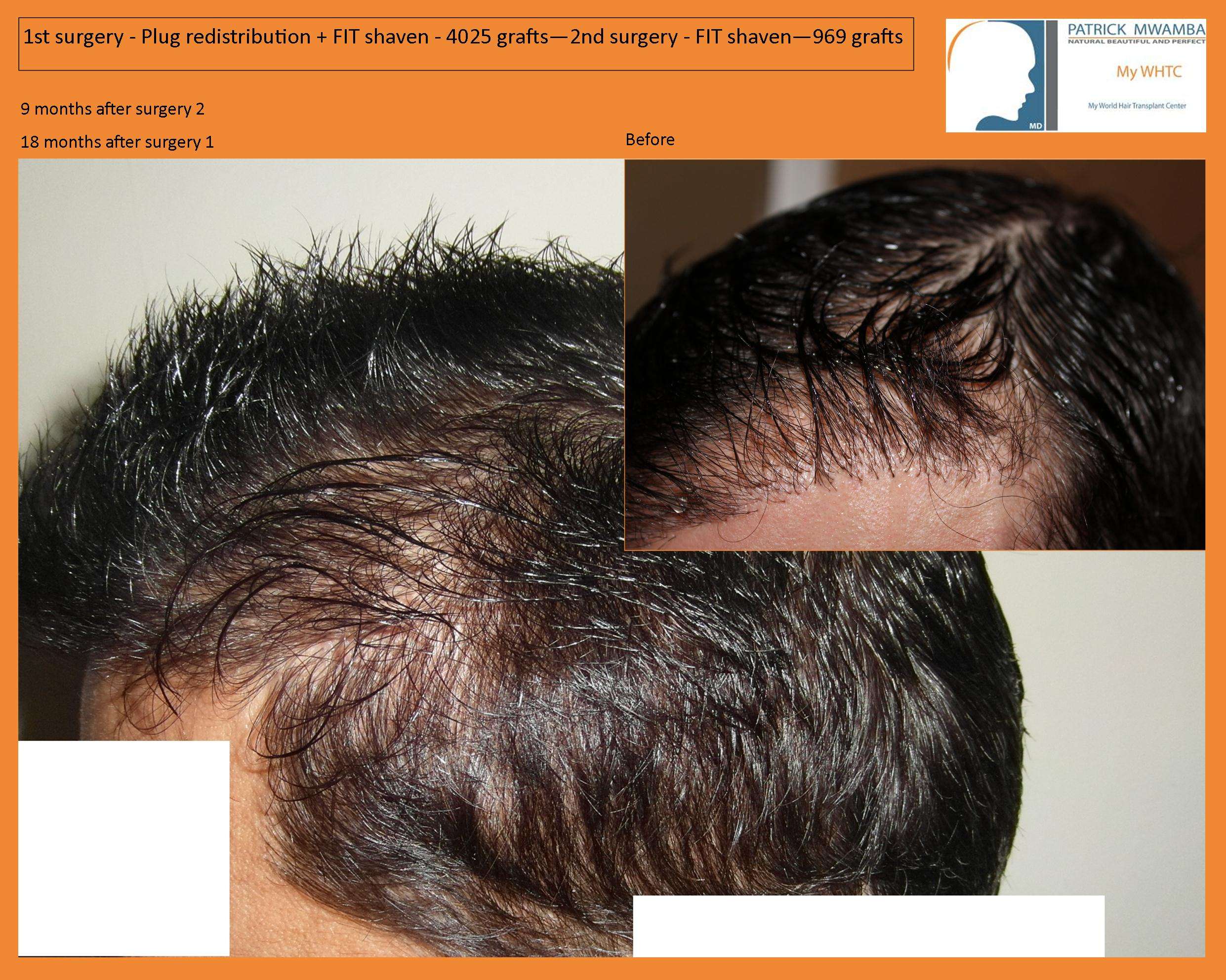

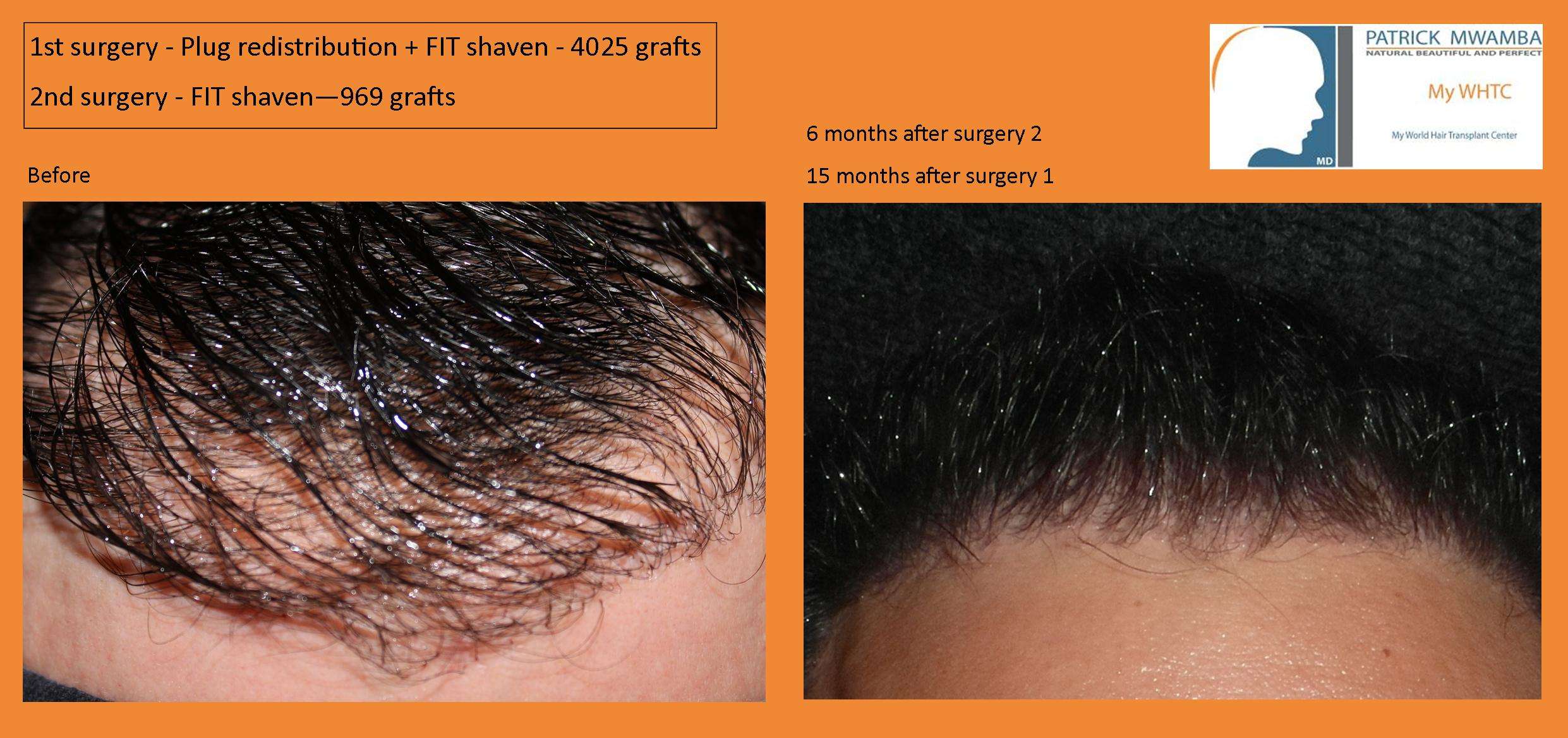
Repair case requires patience and sometimes more than one procedure in order to meet some kind of expectations if possible.
He had 3 previous hair transplants by strip technique (3000 grafts).
Result : wrong hair angle direction, pluggy look, pitting, a damaged receiving area with bumps (cobblestone), and big scars in the donor.
His goal was: (1) To look natural, (2) To fill in his back scar, (3) To lower his frontal hair line and frame his face so that he will stop wearing a hat all the time.
Surgery 1 plan:
• Remove the plugs (to minimize the scarring, we usually close the punch holes with a suture, nylon 5/0, for 3 to 4 days. In this case, we left it for only one day because we had to graft the area)
• Lower FHL with hairs above the nape area, build back the temples pointes in harmony with the new hair line (otherwise the result may not look natural).
• Increase density in frontal zone. This area was fibrotic and whitish because of previous work and had poor blood circulation (poking test, bled after 20 sec or plus).
• Fill in scars in the back.
Total graft number: 4025 grafts in 4 days.
After 9 months
• Yield was very good in the virgin area (temples pointes, FHL). You will notice a difference in hair strength and pigmentation between his FHL and temples pointes. Indeed hairs for the FHL originated from lower donor area above the nape hairs.
• The pluggy look was corrected.
• Poor growth in the scarring area in frontal zone.
• Good coverage of the scar in the back (not illustrated in our pictures).









Surgery #2 Plan (9 months after surgery 1) :
• We decided with the patient to lower the density in the temples pointes by removing the grafts and relocating them in FHL and frontal zone.
• We completed the FHL with grafts from regular donor area for a total of 969 grafts.
RESULTS: Natural look with a low solid hair line, in harmony with temples pointes density.
• No pluggy look.
• Good growth in frontal zone that was grafted at low density.
Next step: Reinforce some patchy area in the frontal zone to complete the work.






IMG]http://imageshack.us/a/img854/2309/sx210.jpg[/IMG]












Repair case requires patience and sometimes more than one procedure in order to meet some kind of expectations if possible.